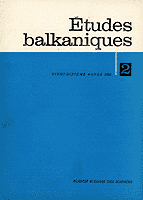

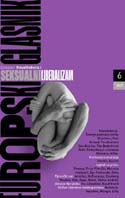
Dragi Jerry! Iako to ne biste mogli naslutiti na osnovi prikaza u medijima, moja knjiga The Nurture Assumption razmatra raznolike teme. Govorim o tome kako se kulture prenose i zašto se mijenjaju, zašto se djevojčice i dječaci ponašaju drukčije u nekim okolnostima, kako adolescenti odrastaju i odbacuju svoje iritantno ponašanje, zašto ljudi imaju tako jaku sklonost identificiranju s grupom i mržnji prema pripadnicima drugih grupa, te zašto se »ja«, koje iza mojih očiju promatra svijet, još osjeća kao da mu je dvadeset godina, iako su oči šezdeset godina stare. No u medijskoj oluji usred koje se moja knjiga nalazi ništa se od toga ne spominje. Sva pozornost usmjerena je na jednu misao, koju novinari uporno prenaglašavaju kada je izražavaju u obliku: »Roditelji nisu važni.« [....]
More...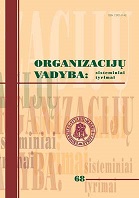
Keywords: Stakeholders; stakeholder theory; instrumental approach; strategic management approach; network approach
The purpose of the paper is to discuss the stakeholder concept and its development, based on stakeholder theoretical framework, and instrumental, strategic management and network approaches. The authors discuss different classification of stakeholders, contrast narrow and broad stakeholder concepts, provide a review of their distinctive features. The differences in approaches to stakeholder expectations literature are contrasted. Straipsnio tikslas – atskleisti suinteresuotų asmenų sampratos raidą, remiantis suinteresuotų asmenų teorijos įžvalgomis bei šiuolaikiniais požiūriais: instrumentiniu, strateginio valdymo, tinklo. Autoriai gretina skirtingas suinteresuotųjų asmenų klasifikacijas, priešpastato siaurą ir plačią suinteresuotų asmenų koncepcijas, apibendrina jų esminius bruožus. Lyginami skirtingi literatūroje įvardinami požiūriai į suinteresuotųjų asmenų lūkesčius.
More...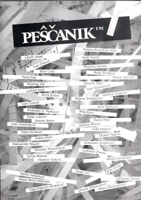
Keywords: Ratko Mladić; nationalism; constitution; The European Union; Serbia; Zoran Đinđić; journal Danica; Kosovo;
Transcript of Hourglass / Pescanik, radio program from 15/12/2006
More...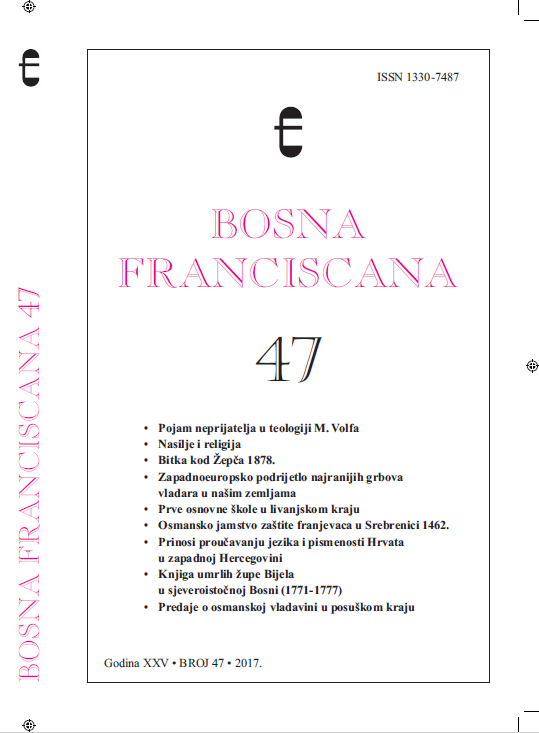
Keywords: elementary school; teachers; Čuklić; Bila; Ljubunčić; Podgradina;
Prije početka dvadesetog stoljeća još nije bilo ni jedne seoske škole u livanjskom kraju. Prva osnovna škola otvorena je prije sto deset godina u selu Čukliću (1907. godine), a za njom slijede: škola u Biloj (1908), u Ljubunčiću (1910), u Podgradini (1913). U ovom prilogu dat je pregled rada tih škole od njihova osnutka do polovice dvadesetog stoljeća. Kronološki su navedeni osnovni podaci o učiteljima i učiteljicama koji su u njima radili. Većina njih, što je vrlo lako uočiti, nisu rođeni u ovome kraju. No, postupno, i domaćih livanjskih prosvjetnih radnika bivalo je sve više.
More...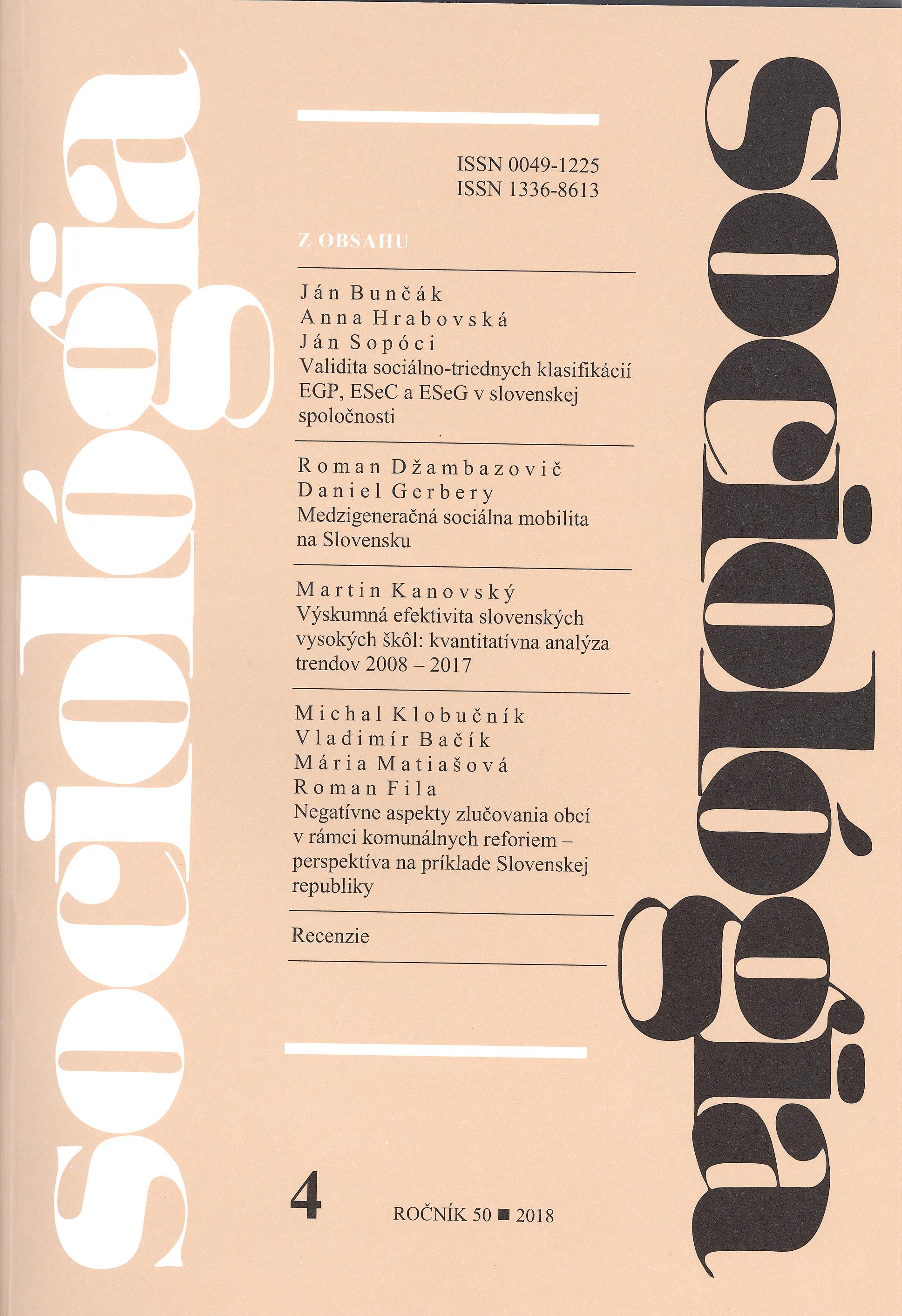
Keywords: Higher education; research funding; non-parametric analysis of trends; research effectivity of universities
The Research Effectivity of Slovak Universities: Quantitative Analysis of Trends 2008 – 2017. The paper deals with the research effectivity of Slovak public universities during ten years period (2008 – 2017). Through non-parametric analysis of trends and mixed-effects model with multivariate t-distribution, trends and differences are analysed in detail. The analytical calculations are focused on properly idetifying both monotonic trends and change points in the research effectivity. Differences in research effectivity are identified and discussed. The analysis shows that only eight out of 20 Slovak public universities display long-term research effectivity, and 12 out of 20 are ineffective in research in the long run, including 5 with extremely low and/or worsening research effectivity. Conversely, some universities display positive long-term trend. In conclusion, the paper also points out the difficulty of long-term achieving ongoing research effectivity due to the non-systematic and abrupt changes of funding principles from Slovak government. Sociológia 2018, Vol. 50 (No. 4: 429-447) https://doi.org/10.31577/sociologia.2018.50.4.17
More...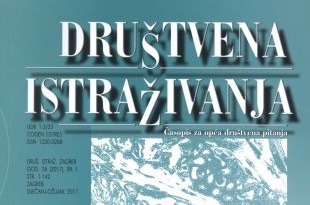
Keywords: Gypsies; Nineties; Minorities; Social history;
Research on the social and developmental position of Gypsies in Croatia was carried out in 1998 in five Croatian settlements. It is interesting that the initial incentive was given by the Gypsies, with the aim ot opening up the debate on issues burdening the Gypsy national community in Croatia both scientifically and professionally and based on more detailed data. The project included only sedentary Gypsies and the research was conducted in settlements with a greater concentration of members of this population. In the selection of settlements several criteria were observed: Gypsy groups settled in urban and rural settlements were included, then “autochthonous” and recently settled groups, and finally groups belonging to different religious confessions. In discussion with the heads of families data were gathered about all the members of the Gypsy family, the living standard and household equipment, material status and income resources. Also, the heads of houses would share opinions on the problems of the settlement as well as the social position and Gypsy issues. Most of the data gathered are interpreted in the article. The research has, apart from an objective insight into the life and problems of sedentary Gypsies, also indicated their wish to participate, more efficiently and in greater numbers, in attempts at finding solutions to fundamental life issues.
More...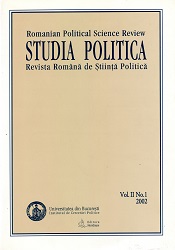
Keywords: Way Out; Way In; Democracy; post-communism; Romania;
After 1989, two election-laws have successively been effective in Romania, establishing the post-communist normative framework within the limits of which four legislative elections took place: the May 1990 elections, organised under the basis of the March 1990 Decree for the election of the Senate, Chamber of Deputies and the President of Romania from March, 1990 and the 1992, 1996 and 2000 elections took place under the Law 68/1992 (entered into force at 15 of July 1992). For the 1996 elections this Law from 1992 was to some extent amended by the Law 115/1996. The last adjustment was operated through the Law 129/2000 for the November 2000 elections.
More...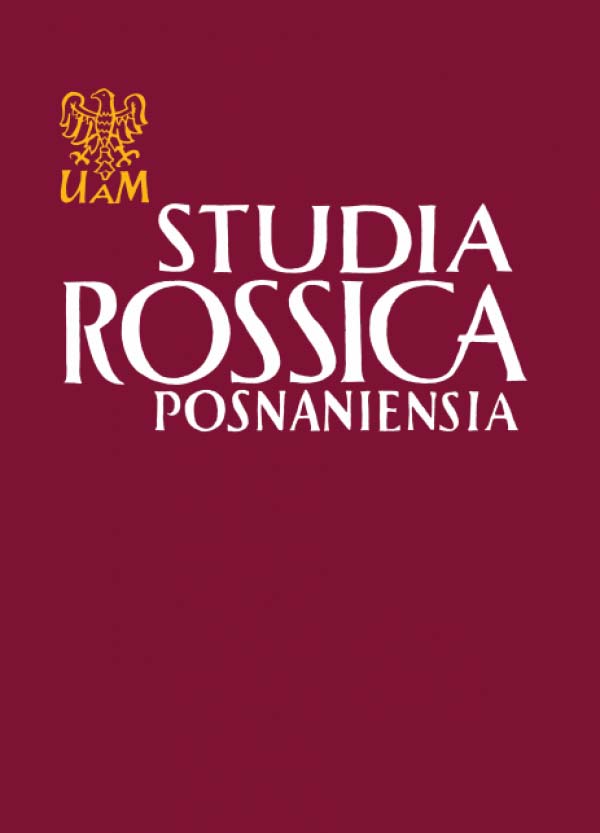
The author analyses Andrić’s thought concerning the history of Bosnia in the light of ideology of Young Bosnia along with its Romantic origin signifying for Bosnia the life on the border of the East and the West.
More...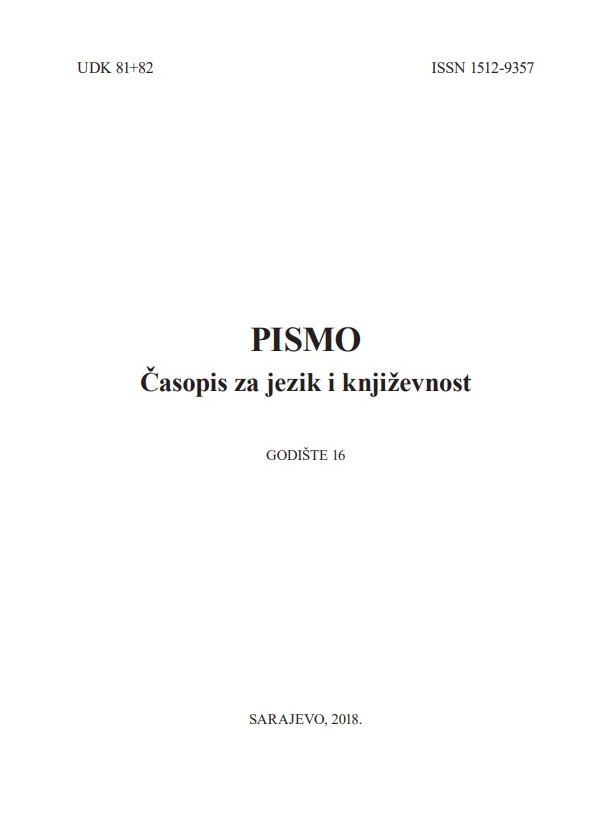
Review of: Zbornik radova sa Sarajevskih filoloških susreta III (knjiga I) i Zbornik radova sa Sarajevskih filoloških susreta IV (knjiga I) (Bosansko filološko društvo, Sarajevo, 2016; Bosansko filolološko društvo, Sarajevo, 2018)
More...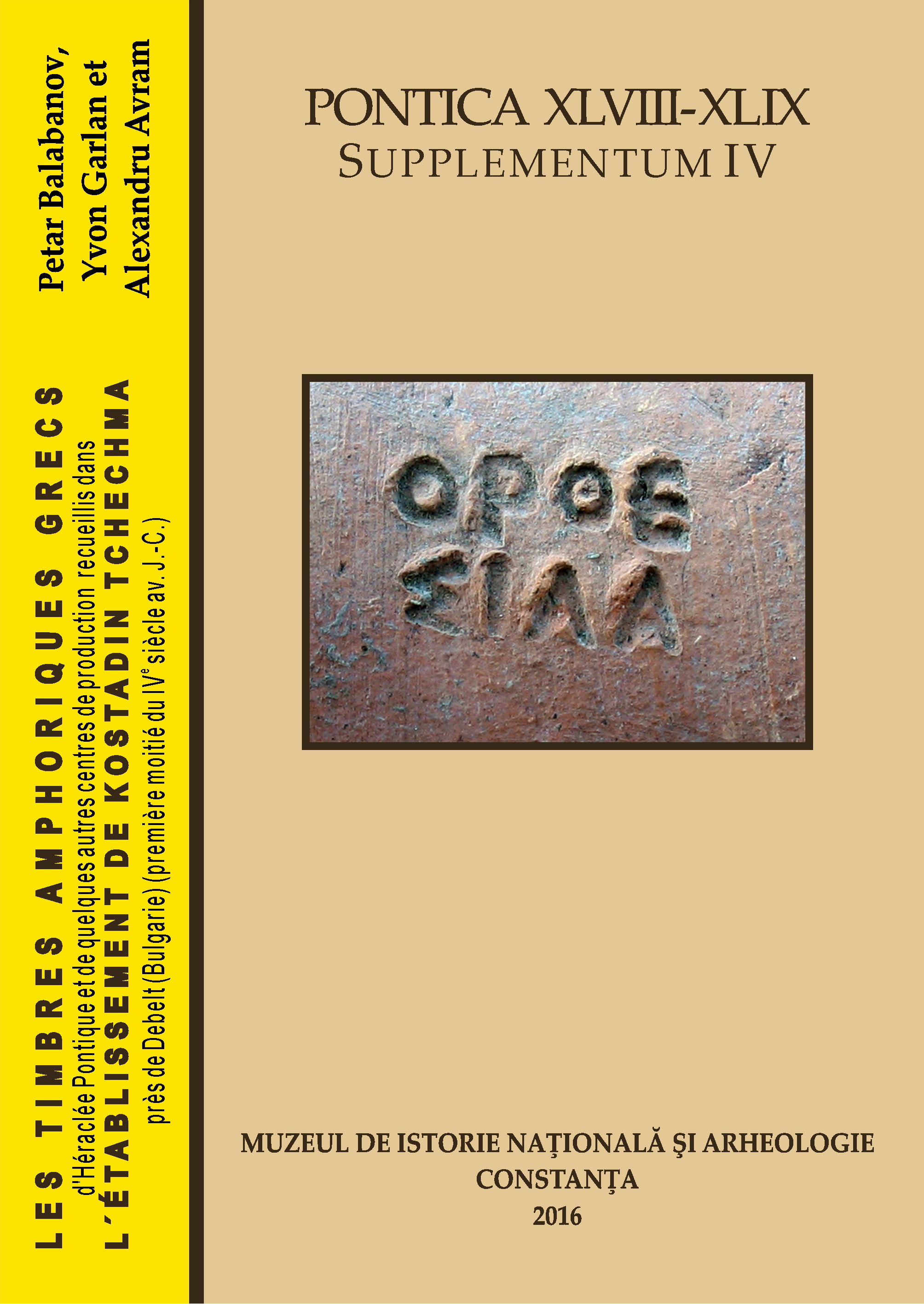
Keywords: Greek amphoric stamps; Kostadin Tchechma; Thracian site;
Une brève présentation spéciale des amphores timbrées d'« Héraclée du Pont » est maintenant nécessaire, à destination surtout des lecteurs occidentaux qui n'y sont guère accoutumés.
More...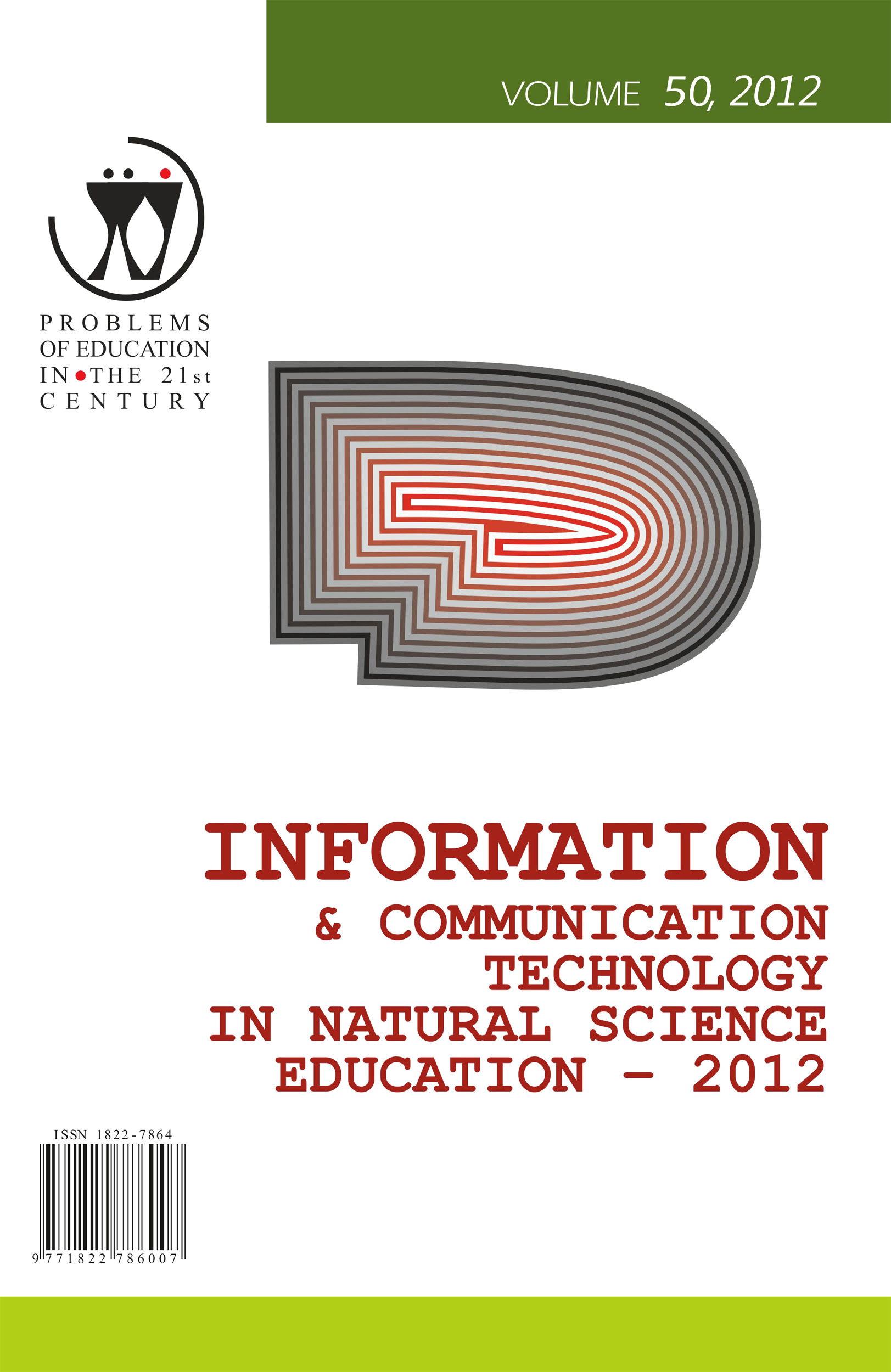
Keywords: computer-mediated learning; computer-assisted learning; critical thinking; geography education; interactivity;
To develop students’ critical thinking abilities, teachers must lead students to engage in discussions and to reason within various points of view, while employing evidence to draw conclusions, make decisions or seek solutions. Computer mediates learning by providing students with visualizations of relevant subject content to facilitate their reflection on these experiences. The purpose of this study is to investigate how technology can enable students to develop critical thinking through technology-enhanced interactivity. A geography teacher and 62 grade seven students from two classes participated in the experiment. One class was taught using traditional methods whereas the instructional strategy of computer-mediated learning was adopted in the other. The findings showed that computer media designed for enhancing interactivity would facilitate teacher-pupil interaction and peer discussion, and consequently contributed to improve students’ comprehension of the geography curriculum content. In addition, the critical thinking ability of the high-achievement students was significantly improved.
More...
Keywords: interdisciplinary; elementary functions; geometric transformations; epistemological teaching; thermology and calorimetry;
Generally speaking the exponential function has large applications and it is used by many non physicians and non mathematicians, too. Nevertheless some crucial and practical problems happen for its mathematical understanding. Mostly, this part of mathematical cognitive programmes introduce it from the mathematical strictly point of view. On the contrary, since both physics experiments make a vast use of it, in this paper the exponential function will be explained starting from physical experiments and only later a mathematical modelling of it will be organized. The relationship physics-mathematics-geometry is crucial and indispensable in this kind of integrated and history&science education. The history and epistemology of mathematics and physics can be a significant means to make the epistemological and didactical research more profound and clear.
More...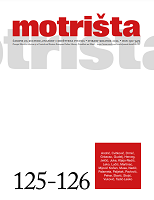
Keywords: Chronicle; cultural events; Mostar; 2022;
4. 4. U Kosači održan koncert Vlatka Stefanovskog i skupine Trio V3, a publika je uživala u kombinacijama instrumentalnog rocka, etnojazza, bluesa i jazz fusiona, koji su stvorili zanimljive i prelijepe zvučne pejzaže. Vlatko Stefanovski jedan je od najznačajnijih jazzrock gitarista ovog dijela Europe, a svjetski je poznat po svojim izvedbama na gitarama.
More...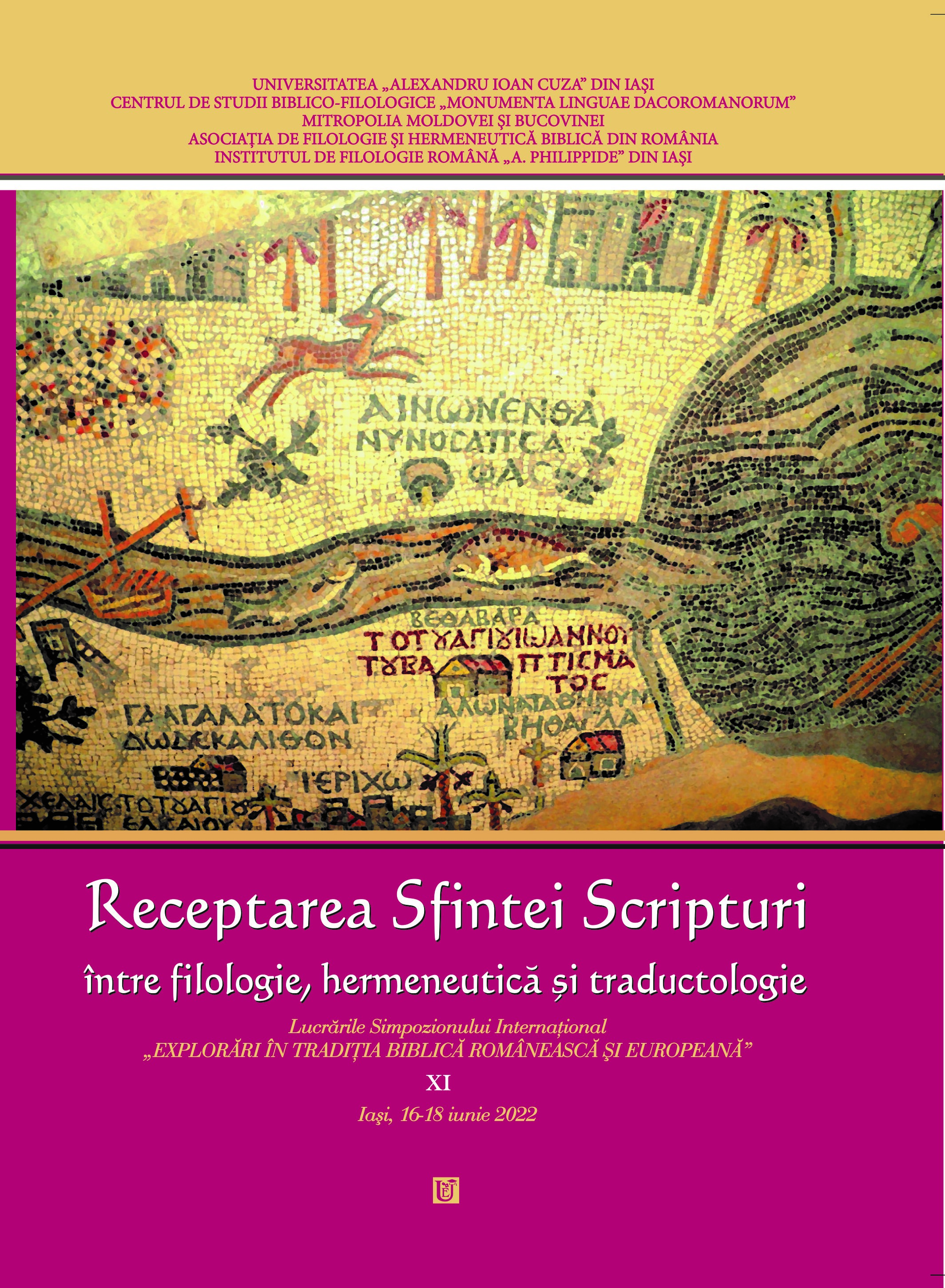
Keywords: anthroponym; name; surname; names of some religious holidays; Christian;
The habit of forming people’s names starting from the name of the religious holidays has been a quite common practice among people from the Western and Eastern Europe, at the beginning of the 4th century. These anthroponyms are a proof of the linguistic continuity and geographic permanence of the Christian terms from which they originate, providing a solid base for the reconstruction of a people’s religious history. In this article we shall discuss the French personal names which are formed from the names of the most important French religious holidays.
More...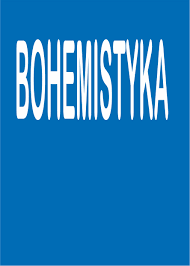
Keywords: grammatical category; grammeme; grammatical-semantic property; grammeme; grammatical-semantic feature; gramm; compatibility
The contribution represents a fragment of an intended Lexicon of grammatical-semantic features. It presents only very general properties as components of grammatical categories and the results of their presence or non-presence for category value interpretation and for (in)compatibility of language means. Grammatical features of a lexical unit can be described with the help of the tagset, i.e., analytical morphological label. Similarly, it is possible to describe a complete grammeme on the principle of fractals, including inner structure of each grammatical category and their values with the help of sets of grammatical-semantic properties. Grammatical-semantic properties bound on lexical forms are not isolated from lexical-semantic features: the first can be considered as a result of grammaticalization of the latter. From the chosen point of view, the construction of grammar from a semantic basis seems to be as a multi-level phenomenon to such a level in which grammatical-semantic properties are based on similarity and contrast in the area of lexical-semantic properties.
More...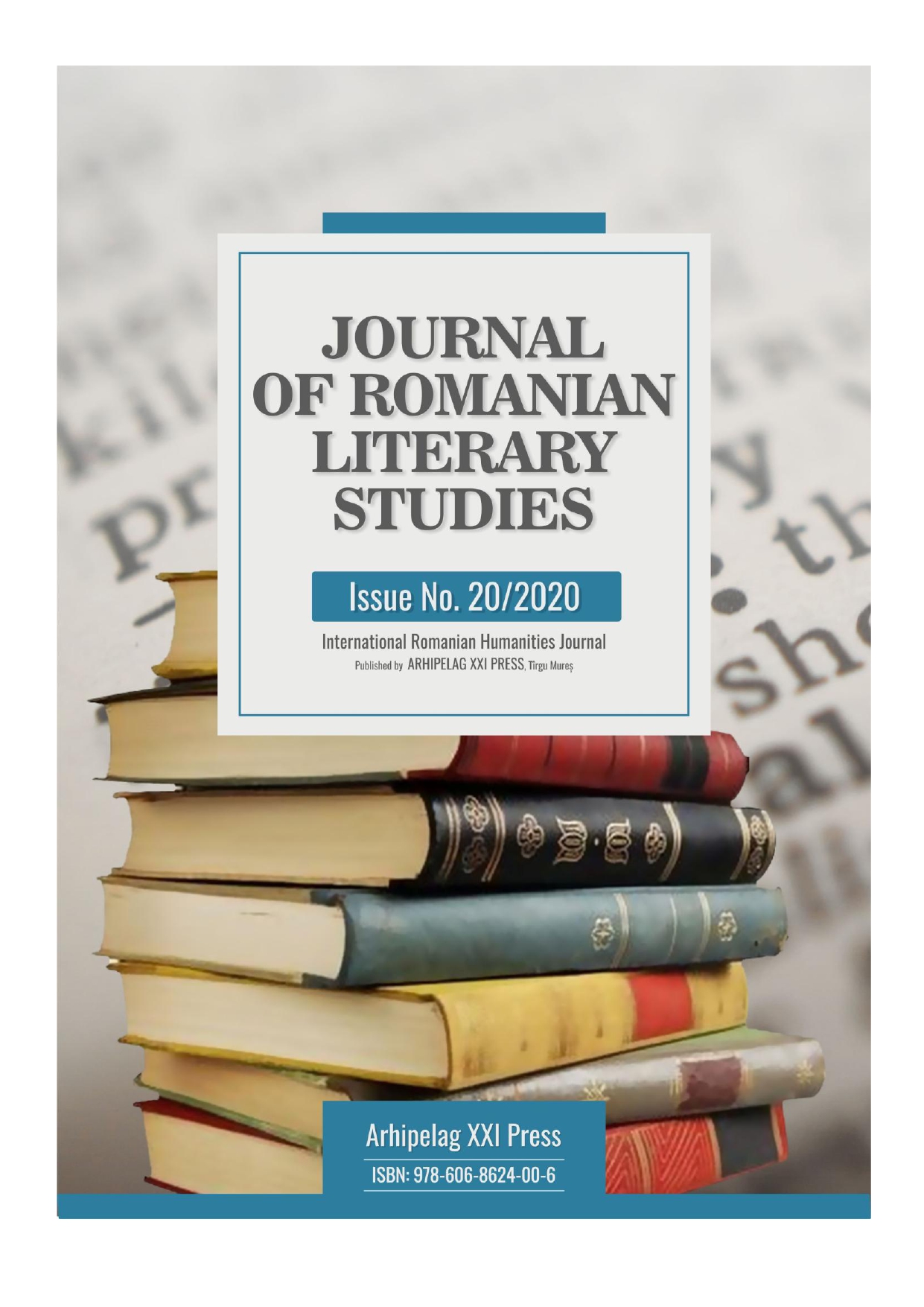
Keywords: Vietnamese American; Masculinity; American Ethnic Literature; Spy; Hero;
In the last decade the novels written by various Asian Americans authors became popular among teenaged and adult readers from the United States, because they depict the real problems of the average American and offer cultural information about several ethnic groups from America. Moreover, Asian American novels impress the researchers of American and Asian literature, because they offer both the image of the adaptation of the immigrant to the United States of America and the way in which they preserve their traditions in the new country, at the same time. The research tries to explain that the main characters from The Sympathizer (a North Vietnamese mole in the Republic of Vietnam, Bon, and a South Vietnamese general) can be seen as Vietnamese heroes, who are exiled to the United States. By talking about a heroic person, we will refer to the hero from an Asian perspective. In this case, the hero does not have to use force, but has to use his intelligence to fight his enemy and can use his physical strength only if he cannot defeat the enemy in another way.
More...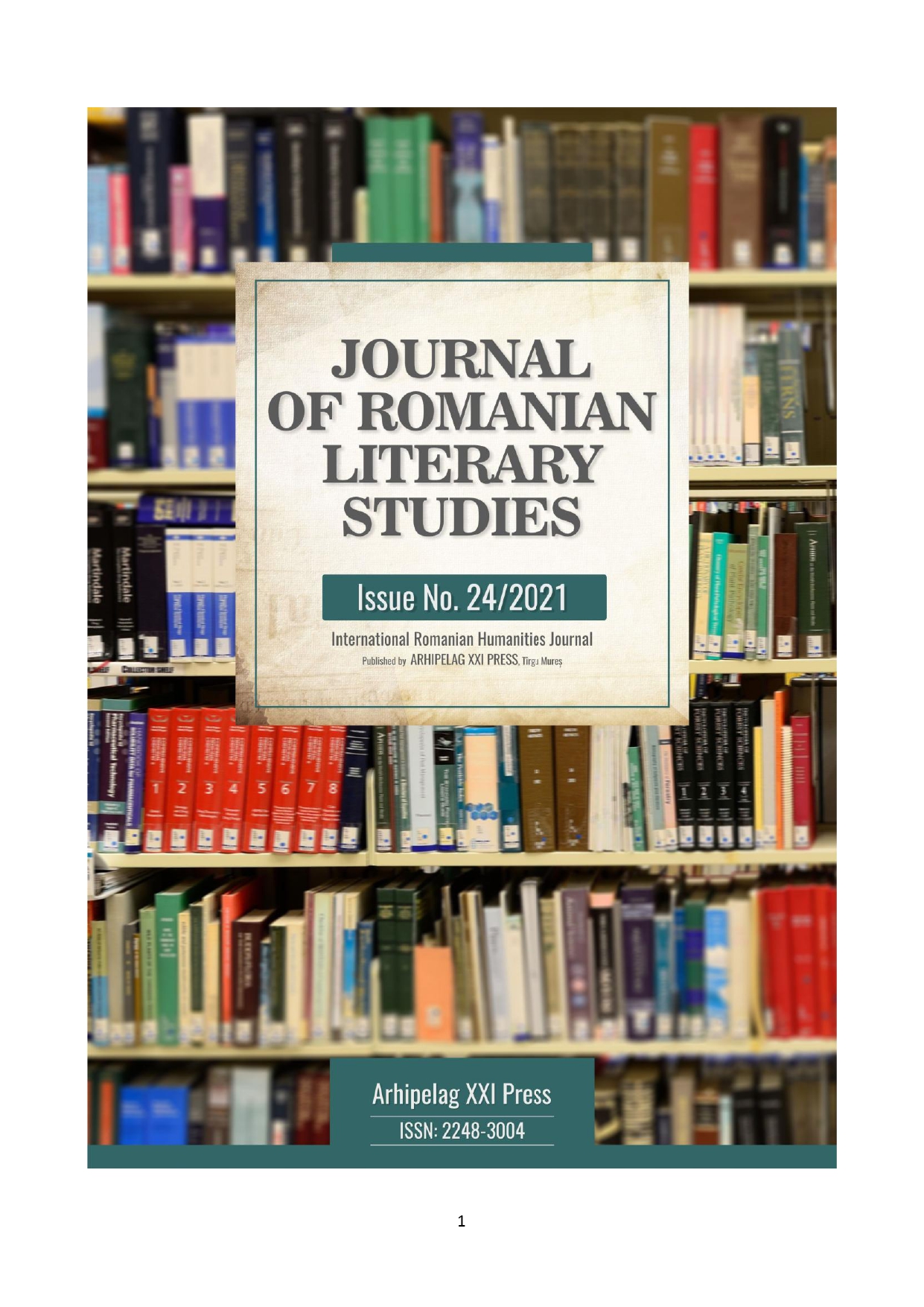
Keywords: Micro-teaching; pre-service teacher training; web 2.0; Edmodo; the pandemic;
The purpose of the study is to describe and discuss a functional model of pre-service teacher training during the pandemic based on an updated version of micro-teaching that takes the real classroom to the web 2.0 environment. The participants were 47 Romanian MA students who were instructed to adopt Edmodo, an open-source Learning Management System (LMS), and other web 2.0 tools into their microteaching as part of their assignments. As a result, students were able to complete their training module even though schools closed on March, 13, at the same time improving their ICT skills which were to become essential over the second school year affected by the pandemic. Micro-teaching, pre-service teacher training, web 2.0, Edmodo, the pandemic.
More...
Keywords: compounds; lexical composition; surrealism; lexical innovations; abbreviation;
Gellu Naum’s poetry is interesting from the perspective of the lexical composition of words as well. This leads to an analysis of poetic compounds which do not seem to comply with precise linguistic norms. In this way, original compound structures full of connections are created and they involve the general mechanisms of language combined with the poetic, creative instinct. Compound-type lexical innovations represent a form of language communication by the creation of connotative meanings in the poetic context.
More...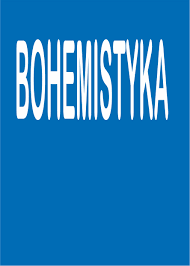
Keywords: Literary education;Czech language and literature;forms of teaching literature;polemical discussions;reforms of Czech education;educational policy;didactics of literature
The authors of the paper introduce the readers to the context of the literary edu- cation in Czech schools. In Czech milieu were hold many polemic discussions, that are known at least since the year 1890. Into that discussions were involved big personalities of conterporary cultural live, among others Hubert Gordon Schauer, František Krejčí, Jaroslav Vlček, Otakar Hostinský, Vilém Mathesius and Jan Mukařovský. In many cases thay evaluated teaching of literature as distant from the life of a young generation, too historically oriented, and pointed out its deficient connection with aesthetics of a literary work. They held against excessive memorization as contrary to the little emphasis put on reading and analysis of literary work. The authors of the paper are strongly convinced that even after more than 130 years of polemic discussions about the form of literary education and a series of reforms (which cannot even be taken into account because it is not clear where one reform ends and another begins), the real curriculum of literary education has not fundamentally changed.
More...